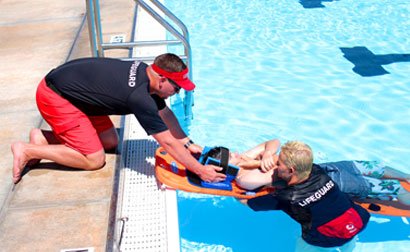10 Tips for Choosing the Right Lifeguard Courses Near Me

When it comes to ensuring the safety of swimmers and beachgoers, the role of a lifeguard is crucial. Lifeguards are trained professionals equipped with the skills and knowledge to prevent accidents and respond effectively in emergencies. If you are considering becoming a lifeguard or wish to enhance your existing lifeguarding skills, enrolling in the right lifeguard courses is essential. Here are ten tips to help you choose the right lifeguard courses near me:
1. Accreditation and Certification:
Always prioritize accredited courses provided by reputable organizations. Look for courses that are certified by recognized bodies such as the American Lifeguard Association. Certification from these organizations ensures that the training meets industry standards and is recognized worldwide.
2. Course Content:
Review the course content and curriculum. Ensure that the lifeguard course covers all essential aspects, including water rescue techniques, first aid, CPR, AED usage, and lifeguarding skills. The course should be comprehensive and provide hands-on training in real-life scenarios.
3. Experienced Instructors:
The quality of the instructors can significantly impact your learning experience. Check the qualifications and experience of the instructors conducting the course. Experienced lifeguards or individuals with backgrounds in water safety and rescue will be better equipped to provide valuable insights and practical training.
4. Training Facilities:
Visit the training facilities, if possible, or inquire about the location where the training will take place. The facility should have proper equipment, access to water bodies for practical training, and a safe learning environment.
5. Course Schedule:
Consider your own schedule and availability when choosing a lifeguard course. Some courses may be offered as intensive programs over a few days, while others may be spread out over several weeks. Choose a schedule that best fits your commitments and availability.
6. Student-to-Instructor Ratio:
A smaller student-to-instructor ratio allows for more personalized attention and better learning. Courses with overcrowded classrooms may not provide the same level of individualized instruction and practical training.
7. Reviews and Testimonials:
Look for reviews and testimonials from previous students who have taken the course. Positive feedback from others can give you confidence in the course’s quality and effectiveness.
8. Cost and Value:
While cost is an important factor, it should not be the sole deciding factor. Evaluate the value of the course in terms of what it offers, the quality of training, and the reputation of the organization. Investing in a reputable and comprehensive course will pay off in the long run.
9. Course Relevance:
Consider the specific context in which you plan to work as a lifeguard. If you are interested in beach lifeguarding, find courses that focus on ocean rescue techniques. Similarly, if you plan to work at a pool or water park, look for courses that emphasize pool safety and regulations.
10. Continuing Education and Recertification:
Lifeguarding skills and protocols may evolve over time, so inquire about opportunities for continuing education and recertification. A good course should offer options for refreshing your skills and staying updated with the latest practices.





